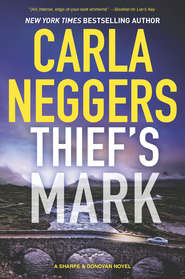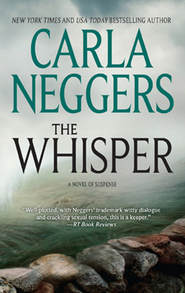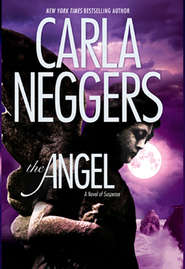По всем вопросам обращайтесь на: info@litportal.ru
(©) 2003-2024.
✖
Tempting Fate
Автор
Год написания книги
2018
Настройки чтения
Размер шрифта
Высота строк
Поля
“Pink roses,” she corrected.
“Proprietary bottles are expensive.”
“Yes, they are, but in the long haul, a private design—unique to us—more than pays for itself.”
Ira scratched his head, not on firm ground when talking about Dani’s mineral water and natural soda company. “Look,” he said, “you know, I know—pretty soon everyone else will know—you’re stretched thin. Getting the Pembroke ready has cost you. Now that it’s opened, your cash-flow situation should improve, but before it does—”
“If I have to entertain cost-cutting measures, Ira, I will do so.”
“Guess it’s a good thing you pay yourself less than your housekeeping staff.”
“That’s an old rumor, Ira, and not true. I’m not personally extravagant, I’ll admit. I don’t mind making sacrifices in the long-term interests of my businesses. The Pembrokes have a long tradition of losing their shirts. Thank you, I’ll pass.”
“I’m sure your father and all the rest of them said the same thing,” Ira pointed out.
“I won’t compromise on quality. It’s what we sell. The resort and water and natural soda businesses are highly competitive—the big guys swallow up the little guys all the time. I’m not Perrier or Coke or Club Med, and I can’t pretend to be. But I’m not going to get stepped on.”
Ira leaned forward. “Dani, it doesn’t have to be this difficult. You took on a lot at once. You’re practically a kid still. You’ve got a fortune tied up in equipment at the bottling plant—you’ve expanded into natural sodas and flavored mineral water at an incredible pace. The Pembroke is a valuable asset, but right now it burns cash.”
“All to a good end.”
“Ever the optimist. There is one more thing.”
With Ira, there always was.
“There’s a rumor floating around you’re thinking of selling this place.”
Dani stiffened. “Not true.”
“I know, and ordinarily I wouldn’t even bring it up, but, Dani, if people didn’t smell blood—”
“Ira, I’m a Pembroke. There’ll always be talk I’m on the verge of self-destructing. I’ve been listening to it ever since I told my grandfather he could give my Chandler trust to charity.” Actually her words had been far more to the point, but this Ira Bernstein knew. “I’m not selling the Pembroke, I’m not switching to a stock bottle, I was only asking about the glass-making company. I am not going broke. Anything else?”
Ira shrugged, irreverent as ever. “You could admit you’re lucky to have me. Am I not one of the few people you know in my line of work who’d put up with a boss who flies kites at lunch? Who just two weeks ago was caught by several guests rescuing one of her kites from the tippy-top of an oak tree and asked me—me—to lie to these guests and tell them that no, that wasn’t the owner of the Pembroke but some stray kid?”
“You are, Ira,” she said with a straight face, “one of a kind.”
“But I’ve gone too far?”
She smiled. “You always do.”
When he left, Dani found herself restless, unusually irritated by the false rumors, the constant battle to get people not to see her as a Pembroke or a Chandler, but simply to see her. Dani Pembroke.
“Most people look at this place and see disaster and folly. I see someone’s dream.”
Her mother’s words, spoken in the overgrown Pembroke rose garden just days before she’d disappeared.
At nine, Dani had been confused. To her, dreams weren’t real.
“Sometimes you can make them real,” her mother had said. “Not all dreams, of course. Only the best ones. The ones you cherish most, the ones that come back to you again and again.”
She’d stopped at a crumbling fountain. Her vivid blue eyes had mesmerized her small daughter with their intense yearning.
“It’s far better to have tried to make your dreams come true and failed than never to have tried at all. Longing isn’t enough.”
But what of the people hurt in the process?
Fighting a sudden, searing sense of loneliness, Dani sneaked out through her private terrace so she wouldn’t have to face Ira down the hall. She took one of the brick paths done in Saratoga’s traditional herringbone pattern that snaked through the grounds. In a few minutes the main house was behind her. It was the jewel of the unique estate—lavish, overdone, oddly whimsical. The exterior was a maze of clapboards, shingles, brick, stone and stucco, with bay windows, towers, turrets, porches, balconies and gingerbread fretwork. Inside there wasn’t one ordinary room.
Ulysses Pembroke’s dream. And what had it cost him? What had it cost his family?
Dani made her way back to her cottage, where she quickly changed into a T-shirt, sweatpants and battered sneakers. No need for her full rock-climbing regalia. She rubbed on sunscreen, then headed through her meadow into the woods, bumping into some guests out for a nature walk or exercise run—and one enterprising couple picking wild blackberries. Seeing people enjoying the place lifted her spirits.
She bypassed the Pembroke Springs bottling plant. She could hear the clatter of bottles running through the expensive, automated equipment. The plant was operating at top capacity. Orders were up. Business was great. Why did people think she’d overextended?
Because you’re a Pembroke. It’s what Pembrokes do.
She came to the rocks. By standards farther north in the Adirondack Mountains, they weren’t much as cliffs went. But they gave novices a taste of climbing, and kept her in shape, and a drop from top to bottom wasn’t too terrifying to imagine, although no doubt it could be lethal. After circling a hemlock, Dani jumped off a smallish boulder on the far edge of the vertical rock, then went down to low-lying brush, so that the steepest part of the cliffs were above her. If she’d been doing a climb, it would be cheating. But she had other plans. She walked out on a flat rock and sat down, letting her legs dangle over the edge. Below, at the bottom of the cliffs, were hemlocks and oaks and a path that led around the rocks back up to the bottling plant.
Flipping onto her stomach, Dani worked her body down so that she was pretty much hanging from the flat rock by her arms. Inexpert, but it got the job done. Glancing down, she saw the narrow ledge directly below, where she’d found the gold key.
She counted to three and let go.
Keeping her body close to the rocks, but not so close she’d smack her face, she dropped onto the ledge. It was just three feet wide, but she was small. She fit fine.
She squatted and groped in the dirt, moss, dead leaves and doomed seedlings for anything interesting, any clue as to how her key had ended up there. Finding it had been a pure accident. At first she’d thought it was just an old key. Only afterward had she realized what it was. This was her first opportunity to return to the ledge, and she took her time and examined every inch of it in case she’d missed something.
But she hadn’t. There was nothing.
How had the key gotten there?
She imagined Ulysses and his practical wife arguing, imagined her urging him to concentrate on saving and investing instead of throwing his money into idiotic things like gold keys.
Dani could see her great-great-grandmother flinging the key off the cliffs.
Probably there was a more ordinary explanation. Or, at least, a less dramatic one.
Getting back up from the ledge without her gear proved easier than she’d anticipated. There were good handholds and toeholds, and she hoisted herself up in no time. But it was a warm afternoon, and she hadn’t slept much last night. She was sweaty, and as she sat on a boulder to catch her breath, she could feel the ache in her legs.
“Miss Pembroke?”
Dani whirled around, immediately recognizing a young local reporter at the top of the cliffs. A camera dangling from her neck, she apologized for startling Dani and explained she’d been assigned to do an article on the Pembroke and Pembroke Springs.
“No one will talk to me,” she said. “I just tried to interview the plant manager, but he said he can’t talk to reporters, and I noticed you walking over here.”
“He can’t. It’s nothing personal—mineral water is an extremely competitive business, and we have to watch ourselves.”
“Oh. That’s what he said.” She licked her lips, looking awkward, which, Dani had come to discover, was unusual in a reporter. “Would you mind…I know this is short notice…could you answer a couple of questions? I’ve done my homework. I’ve read everything I can find on you, your family, the estate—I won’t ask you questions you’ve been asked a million times before.”











